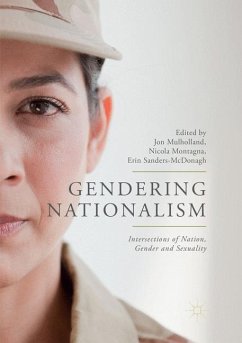
Femininities and Masculinities in the Digital Age
Realia and Utopia in the Balkans and South Caucasus
Versandkostenfrei!
Versandfertig in 6-10 Tagen
98,99 €
inkl. MwSt.
Weitere Ausgaben:

PAYBACK Punkte
49 °P sammeln!
This book provides a fresh overview on the debate about the remarkable regression of gender equality in the Balkans and South Caucasus caused by the fall of socialism and by the revitalization of religion in Turkey. Contrary to the prevailing opinion of researchers who state continuous male domination, the book presents strong arguments for an alternative outlook. By contrasting the realia of gender relations with the utopia of new femininities and new masculinities driven by digital visual communication, the book provokingly concludes with the arrival of two utopias: the Marlboro Man - still ...
This book provides a fresh overview on the debate about the remarkable regression of gender equality in the Balkans and South Caucasus caused by the fall of socialism and by the revitalization of religion in Turkey. Contrary to the prevailing opinion of researchers who state continuous male domination, the book presents strong arguments for an alternative outlook. By contrasting the realia of gender relations with the utopia of new femininities and new masculinities driven by digital visual communication, the book provokingly concludes with the arrival of two utopias: the Marlboro Man - still authoritative but lonely - conquering and refusing family obligations; and with the emergence of a new femininity type - strong and beautiful. As such this book provides a great resource to anthropologists, demographers, sociologists, gender and media researchers and all those interested in feminist issues.












